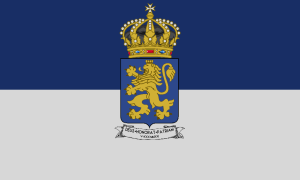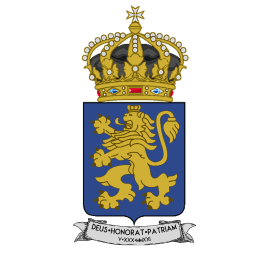Rosovia

|
This article is currently a work in progress. This article is in the process of developing its contents. Refrain from any edits to Rosovia,
without first contacting the main page editor.
|
| ||||||||||||||||||||||||||||||||||||||||||||||||||||||
The Kingdom of Rosovia is a sovereign nation located on the Komi Peninsula, stretching from the northern reaches of Karelia to the southern border with the Finnish Commonwealth. Renowned for its strategic location, effective diplomacy, and well-organized armed forces, Rosovia has emerged as a key player in regional politics and international affairs.
Geography
Rosovia's territory encompasses diverse landscapes, including dense forests, pristine lakes, and rugged mountains. The Komi Peninsula, with its strategic position between the Republic of Karelia and the Finnish Commonwealth, provides Rosovia with access to important trade routes and natural resources.
History
The history of Rosovia is a testament to the resilience, determination, and unity of its people, emerging from the tumultuous aftermath of the dissolution of the Soviet Union. Originally inhabited by indigenous tribes, the region of Rosovia became a battleground for competing influences, as neighboring powers, including Novgorod and Sweden, vied for control.
Amidst the shifting tides of history, the people of Rosovia steadfastly maintained their autonomy and cultural identity, resisting external pressures and asserting their right to self-determination. As the Soviet Union crumbled in the late 1980s, Rosovia seized the opportunity to break free from the shackles of oppression and forge its own destiny.
In 1989, against the backdrop of political upheaval and transition, the Kingdom of Rosovia was born. With the collapse of the Soviet Union, the region of Rosovia declared its independence, marking a historic moment of liberation and renewal. Led by visionary leaders and fueled by the fervent spirit of nationalism, Rosovia embarked on a journey of nation-building, guided by the principles of democracy, freedom, and diplomacy.
The establishment of the Kingdom of Rosovia in 1989 symbolized a new beginning for its people, as they charted a course towards a brighter future. Through steadfast resolve and unwavering commitment, Rosovia emerged as a beacon of hope and inspiration in the post-Soviet landscape, embracing its newfound sovereignty with optimism and determination.
Since its inception, Rosovia has remained steadfast in its pursuit of peace, stability, and prosperity for its citizens. With a rich cultural heritage and a vibrant spirit of innovation, Rosovia continues to thrive as a dynamic and resilient nation, standing proudly on the world stage as a symbol of hope and progress in the face of adversity.
One of the defining moments in Rosovian history was the Treaty of Komi, signed between Rosovia and neighboring powers, which recognized Rosovia's sovereignty and established its borders. Since then, Rosovia has maintained a policy of neutrality, avoiding entanglement in foreign conflicts while actively engaging in diplomacy to promote peace and stability in the region.
Government and Politics
Rosovia is a semi-constitutional monarchy with a parliamentary system of government. The reigning monarch, King Bonesea, serves as the ceremonial head of state with limited constitutional powers, while executive authority is vested in the Prime Minister and the Council of Ministers. The Rosovian Parliament, known as the Royal Government of Rosovia, is responsible for passing legislation and representing the interests of the people.
Military and Defense
Main Article: Royal Rosovian Armed Forces
Despite its relatively small size, Rosovia maintains a well-trained and disciplined armed forces, known for their effectiveness and professionalism. The Royal Rosovian Armed Forces consist of the Royal Territorial Service, Royal Gendarmerie, Royal Territorial Air Wing and the Royal Rosovian Coast Guard, tasked with safeguarding the kingdom's territorial integrity and defending against external threats. Rosovia's military doctrine emphasizes defense, deterrence, and cooperation with neighboring states to ensure regional stability.
Economy
Rosovia's economy is diverse, with key sectors including forestry, mining, agriculture, and tourism. The kingdom's natural resources, including timber, minerals, and freshwater resources, contribute to its economic prosperity. Rosovia's strategic location on important trade routes has also facilitated trade and commerce with neighboring countries, further bolstering its economy.
Culture and Society
Rosovia is known for its rich cultural heritage, influenced by the traditions of its indigenous peoples and the cultural exchanges with neighboring nations. The kingdom celebrates a variety of festivals and traditions throughout the year, showcasing its vibrant arts, music, and cuisine. Rosovian society values education, innovation, and community, with a strong emphasis on social cohesion and mutual respect.
Conclusion
The Kingdom of Rosovia stands as a testament to the resilience, diplomacy, and unity of its people. With its strategic location, effective governance, and commitment to peace, Rosovia continues to play a pivotal role in regional politics and international relations, contributing to stability and prosperity in the wider Baltic region.

